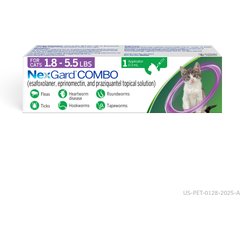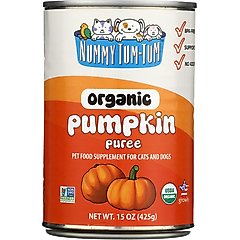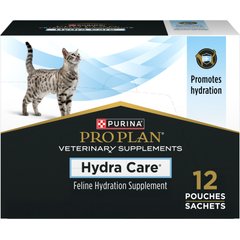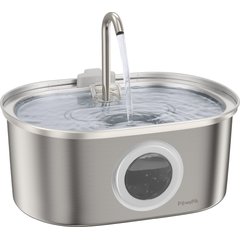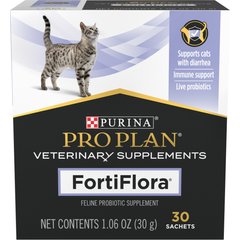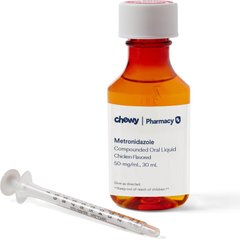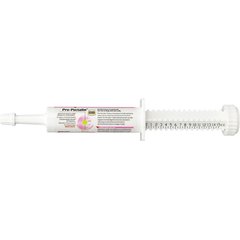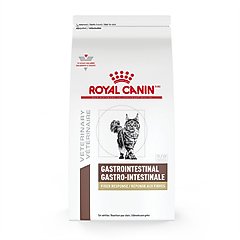Cat Diarrhea: Causes, Remedies, and When To Visit the Vet
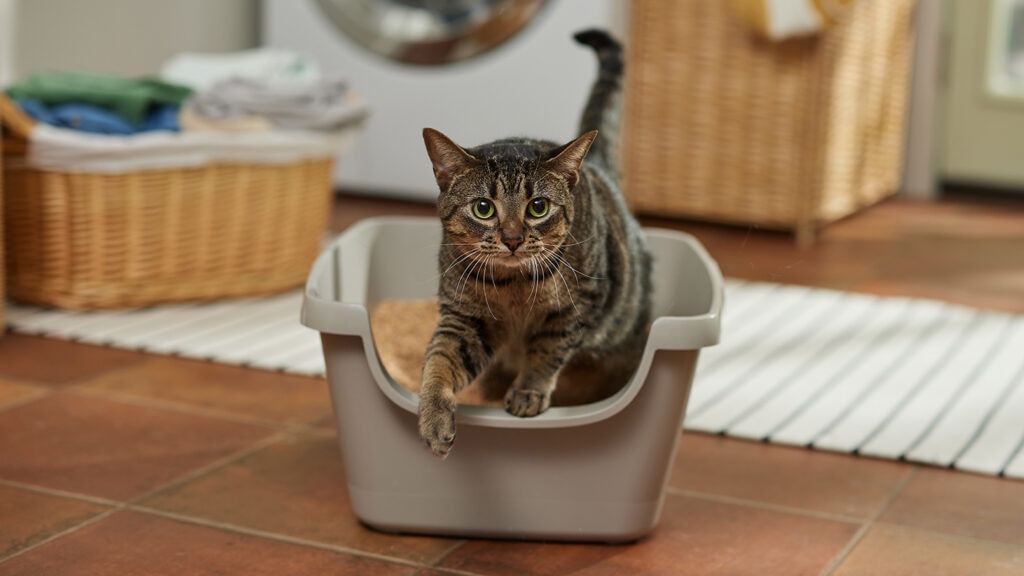
Photo by Chewy
If your cat is suddenly having more accidents or trips to the litter box, it could be a sign of cat diarrhea. Occasional bouts are normal, including in kittens and senior cats, but if it lasts more than a day or comes with symptoms like vomiting or not eating, call your vet.
To help you figure out what’s going on, we asked vets to break down the common causes of cat diarrhea, what you can do at home, and when it’s time to seek professional care.
Key Takeaways
- Diarrhea in cats can be caused by simple issues, like diet changes, or more serious conditions, like infections or organ disease.
- Monitor your cat for other symptoms—like vomiting, lethargy, or not eating—that may require a vet visit.
- At-home care includes hydration, stopping treats, and feeding small amounts of plain yogurt or canned pumpkin if tolerated.
- If diarrhea lasts more than 48 hours or your cat seems unwell, contact your veterinarian for diagnosis and treatment.
Cat Diarrhea Causes
There are many possible causes of diarrhea, from a simple change in your cat’s diet to an underlying health condition.
In some cases, diarrhea can become chronic—lasting several weeks or longer—and may require a more thorough diagnosis and long-term treatment plan from your vet.
Here are some of the most common possible causes of cat diarrhea:
- New cat food: Cats can be delicate creatures, and many of them have a sensitive stomach. Giving them a new food and/or making dietary changes too quickly can alter their intestinal environment and lead to diarrhea—and other possible symptoms like vomiting and refusal to eat.
- Ingestion of poisonous plants or other toxins: Diarrhea is a common reaction to your cat getting into something they shouldn’t have, like a poisonous plant or some other toxin. If you suspect your cat has ingested poison or toxins, call poison control or seek emergency veterinary care at your local animal hospital.
- Intestinal infections: Viral and bacterial infections (like coccidia) and intestinal parasites (roundworms, hookworms, and whipworms) are likely causes of cat diarrhea, especially if your cat hasn’t had adequate deworming, like NexGard COMBO.
Recommended Product
- Food allergies or food intolerances: Just like humans, cats can be sensitive to certain types of foods. This is common when switching to a new food, but they may also develop an allergy or intolerance to food you’ve been giving them.
- Cancer: Gastrointestinal tract cancers can cause diarrhea, vomiting, and blood in the stool. Cancer can also cause chronic inflammatory disease that results in chronic diarrhea, according to Amber Carter, DVM, DABVP (Feline Practice), owner of Cat Care Clinic in Ormond Beach, Florida.
- Hyperthyroidism: Weight loss and increased appetite are the most common symptoms of hyperthyroidism in cats, but diarrhea is possible too.
- Intestinal blockage: A blockage in your cat’s digestive tract can also cause diarrhea, vomiting, refusal to eat, lethargy, weakness, and abdominal swelling. Your cat may also struggle to defecate or cry out when attempting to go to the bathroom. This is a medical emergency, so if you suspect an intestinal blockage, take your cat to the emergency vet right away.
- Chronic enteropathy (inflammatory bowel disease): Chronic enteropathy is a fancy name for a gastrointestinal disease that lasts for at least three weeks without any other obvious underlying cause.
- Megacolon: Megacolon is an often-overlooked cause of diarrhea, says Kelly Diehl, DVM, senior director of science communication at Morris Animal Foundation based in Denver, Colorado. It develops when a cat is constipated—the large intestine stretches and loses tone, and loose stool can leak around hard feces. This often presents like diarrhea, but it’s really a form of constipation.
What To Feed a Cat With Diarrhea
If your cat has diarrhea but seems fine otherwise, you might be able to help settle their stomach at home with a bland diet. This isn’t a cure-all, but it can give their digestive system a break while you monitor for other symptoms.
Try small amounts of easy-to-digest foods like:
- Plain boiled chicken or turkey (no skin or seasoning)
- White rice
- Plain canned pumpkin (not pie filling)
Recommended Product
- Prescription or vet-recommended gastrointestinal diet
Feed small portions throughout the day instead of full meals, and make sure your cat has plenty of fresh water. If they’re not improving in 24–48 hours—or their symptoms get worse—it’s time to call your vet.
And skip the DIY remedies unless your vet gives the go-ahead. Some common ingredients can actually be harmful to cats.
Cat Diarrhea Home Remedies
If you’re wondering what to give a cat with diarrhea at home, there are some things you can do to try to alleviate symptoms.
Here are some recommendations, according to Dr. Carter.
Stop Feeding Your Cat Treats
Put the treats on hold. Some of the ingredients may be responsible for the diarrhea and stopping them, at least temporarily, can help you pinpoint if they’re the culprit.
You can, however, feed 1 tablespoon or so of plain yogurt with probiotics (if the cat will accept it) or plain canned pumpkin. The good bacteria in plain yogurt benefit the GI tract, while pumpkin has fiber that can help bulk up the stool.
Keep Your Cat Hydrated
Cats with diarrhea lose fluids fast—and that can lead to dehydration. To help keep your kitty hydrated, mix Purina Pro Plan Veterinary Diets Hydra Care into their water.
Recommended Product
You can also try a cat drinking fountain to encourage more sipping. Cats love moving water—it tastes fresher and appeals to their instincts.
Recommended Product
If your cat isn’t improving, it’s time to see the vet.
When To Go to the Vet for Cat Diarrhea
If your cat has an acute (sudden onset) case of diarrhea that lasts longer than 48 hours, go to the vet for a checkup, Dr. Carter says. And if there are accompanying symptoms, such as your cat acting sick, being lethargic and/or not eating, you should take them sooner.
Diagnosing Cat Diarrhea
Your vet can often figure out what’s causing your cat’s diarrhea by looking at a stool sample (bring one if you can) and running a few tests. These might include blood work, X-rays, ultrasounds, or even a scope or surgery in rare cases.
They’ll also check for parasites and infections. Some are easy to spot, but others need lab testing to confirm.
Veterinary Treatment for Cat Diarrhea
Treating cat diarrhea starts with identifying what’s causing it. If it’s from a diet change, switching back to your cat’s old food may be all that’s needed (though it might take a day or two).
If it’s something more serious, your vet will treat the underlying issue—whether that’s an infection, inflammation, or something else.
Prebiotics, Probiotics and Antibiotics
Dr. Carter says prebiotics and probiotics, like Purina Pro Plan Veterinary Diets FortiFlora, are often recommended to help balance a cat’s bacterial microbiome.
Recommended Product
Antibiotics, like metronidazole, may also be prescribed to help control bacterial overgrowth.
Recommended Product
There are also prescription and over-the-counter diarrhea medicines for cats that you can try with the green light from your vet, like Vetoquinol Pro-Pectalin.
Recommended Product
Bland Foods and a GI-Specific Diet
In addition to bland foods, like ground turkey and pumpkin, your veterinarian may recommend a GI-specific cat diet, like Royal Canin Veterinary Diet Adult Gastrointestinal.
Recommended Product
It may contain higher amounts of fiber to help bulk up the stool or have specific, limited ingredients, says Dr. Carter.
FAQs About Cat Diarrhea
What do I do if my cat has diarrhea but seems fine?
If your cat is otherwise acting normal—eating, drinking, and playing—you can monitor them at home for a day or two. Try a bland diet and make sure they’re staying hydrated. If the diarrhea lasts more than 48 hours or new symptoms appear, call your vet.
What can I give a cat with diarrhea?
You can offer small amounts of plain boiled chicken, white rice, or canned pumpkin (not pie filling). Always check with your vet before giving anything new—especially medications or supplements.
What are natural remedies for cat diarrhea?
Plain canned pumpkin and probiotics can sometimes help firm up stool and support gut health. These are safe in small amounts if your cat tolerates them—but skip anything homemade or herbal without your vet’s OK.
